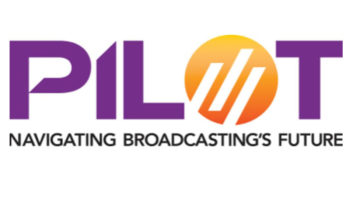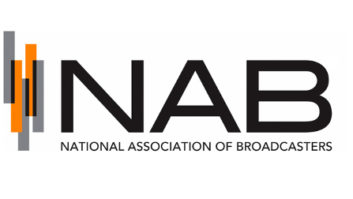WASHINGTON The next president and chief executive officer of the National Association of Broadcasters faces significant challenges directing an organization that leads an industry caught in dire economic times, according to broadcasters familiar with the recruitment process.
The NAB, which hopes to have a new leader in place by September, has tapped executive search firm Russell Reynolds Associates to help find the perfect candidate to replace David Rehr. He resigned suddenly in May and is now using office space at the communication firm of Crosby-Volmer in Washington.
Emerging as the desired type of leader is one who chooses external battles wisely and can balance the continual and sometimes competing needs of TV and radio members, observers said.
Sources have told Radio World previously that Rehr experienced conflict with television board members who were displeased with NAB’s performance on key issues — including that the trade group was not able to convince the FCC to proceed with the DTV transition in February, that it failed to obtain multicast must-carry rights for TV stations and couldn’t block the FCC’s so-called “white spaces” initiative opening up broadcast spectrum for shared use by other devices.
Other broadcasters said NAB’s next leader must be able to handle pocketbook issues like performance rights fees and ensure the trade group remains relevant in the face of new technology.
Just as important is finding someone who is a shrewd lobbyist and strategist to lead NAB on legislative issues affecting thousands of commercial radio and TV broadcasters, some insiders said.

Dave Kennedy, Diane Sutter and Steve Newberry are among those whose names have been mentioned as possible candidates, as have Jim May, John David and others. “Clearly, a daunting task awaits the new leader. Increasingly broadcasters feel threatened by punitive legislation and regulation,” said Bill O’Shaughnessy, a former NAB board member who is president and editorial director of WVOX(AM) and WVIP(FM) in New York state.
Bruce Reese, president and chief executive officer of Bonneville International Corp., is the chair of the NAB search committee. With a headhunter firm in place, the search committee is formulating specifications for the position and evaluating the needs of the industry.
“We are seeking input from as many stakeholders as possible,” he said. “We are hearing a bit of everything right now. Some think we need a broadcaster, others say a non-broadcaster, someone with great relationships with people in the White House and Congress. No doubt the person will need charisma and presence.”
POTENTIAL CANDIDATES
Observers contacted for this story mentioned the names of several potential candidates including Jim May, head lobbyist under former President/CEO Eddie Fritts; Steve Newberry, the new NAB joint board chairman; David Kennedy, former president and chief executive officer of Susquehanna Media and now CEO of FlyCast; Diane Sutter, president and CEO of ShootingStar Broadcasting; and John David, NAB’s current executive vice president of radio. [After the print edition of this article was prepared, the name of CBS lobbyist John Orlando entered the mix as well; that would mark a return to NAB for Orlando.]
NAB Spokesman Dennis Wharton declined comment on the names of potential candidates.
Search committee members believe a 90 to 120 days timetable is sufficient time to complete the interview process, make a selection and an offer, and get a contract signed, Reese said.
He declined to discuss the pay range for the new NAB leader, but said, “NAB is prepared to pay what we need to get the right person.”
That “right person” will inherit huge challenges NAB members are facing, many of which are attributable to the poor economy. However, the new NAB head should not be viewed as a savior for broadcasters, Reese added.
“(Broadcasters) are the ones who will have to save themselves. I do not want to understate the value of the position, but yet this person is not going to save the industry single-handedly,” Reese said.
One industry observer described the job as one of the “plumb lobbying jobs” in the nation’s capital. It is a high-profile position leading one of the most active and visible advocacy groups in Washington. There should be no shortage of qualified candidates.
“I expect them to cast the net far and wide and have a large pool of very qualified people to choose from,” said Bill McElveen, a regional manager with Citadel Broadcasting based in South Carolina.
Bill Clark, former chairman and chief executive officer of Shamrock Broadcasting, which sold to Chancellor Communications in 1996, said it might be time for NAB to turn to a broadcaster as its new president.
“I sense there is a good bit of sentiment amongst broadcasters for that. I believe there would be a good number of candidates who fit that criteria,” Clark said.
NOT INTIMIDATED
Rehr, who had come to the NAB in 2005 when Republicans controlled the White House and Congress, had previously been president of the National Beer Wholesalers Association.
Clark said it takes a particular skill set to be successful leading the NAB.
“It takes a good bit of political skill, and I’m not talking lobbying skills, but relationship building and making the right moves. Managing the NAB is a bit like herding cats sometimes,” Clark said.
The ability of the new president not to be intimidated by NAB board members is crucial, said Art Sutton, Jr., president and chief executive officer of Georgia-Carolina Radiocasting, a group that owns 13 small-market radio stations in Georgia, South Carolina and North Carolina.
“We have some of the most significant issues facing the industry in decades, it not our entire history. The new guy or gal must find someone who can communicate with the public, has a passion for the business and doesn’t irritate Congress with a heavy-handed approach,” Sutton said.
Although Sutton didn’t mention Rehr, some had criticized Rehr for his strong brand of lobbying, including famously saying he’d rather “slit his throat” than negotiate with the record labels on performance fees for terrestrial radio.
Broadcast stations are unique operations and businesses, Sutton said.
“The most effective leaders of NAB and RAB have been individuals who have worked in the industry and understand it,” Sutton said.
It’s clear that being president and chief executive officer of the NAB is a big job, as O’Shaughnessy summed up: “We require a diplomat who can bind our wounds, heal our divisions and restore harmony among all disparate elements of our professions,” he said.











